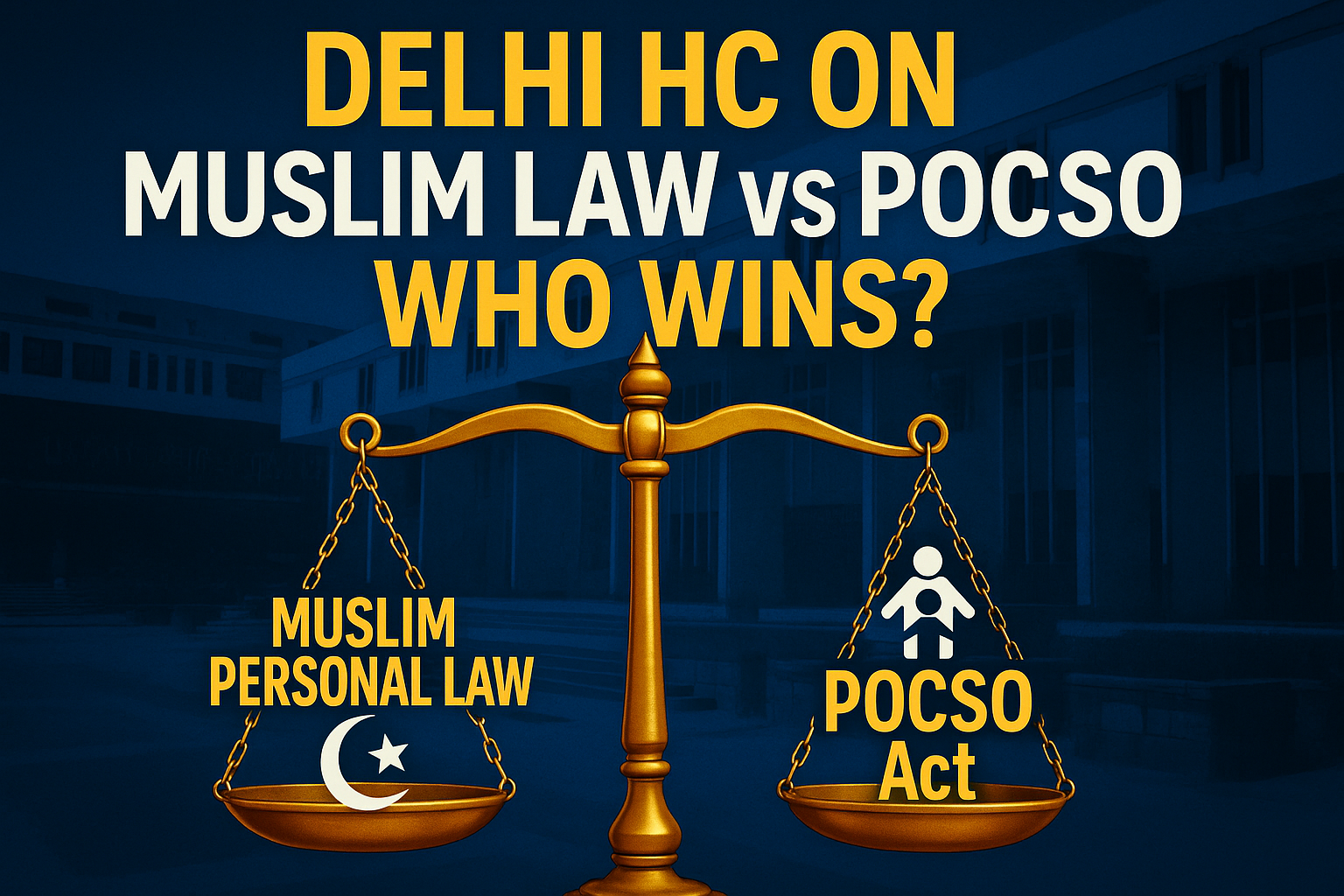Introduction
The High court of Delhi recently delivered a ruling that grabbed the attention of the people around the nation as it is a very long-time debate going on Muslim personal law and the statutory child protection laws in India. One of the most important questions arises in this question is whether early marriage could stand against the protection of children from Sexual Offences (POCSO) Act, a statutory provision that prevails over personal law, this will help other courts to decide in the future cases involving similar conflicts.
Background
This case tells us about the society we live in and what children are facing when personal law conflicts with the laws that are made to protect children. The case revolves around a young Muslim girl with a tragic past. At the age of 14 she gave birth to the child after being assaulted by her stepfather. Later she got married to the applicant who was subsequently accused under section 363 deals with Kidnapping, section 376 deals with Punishment for Rape of Indian Peanl Code and Section 6 of POCSO Act which deals with Punishment for aggravated penetrative sexual assault. The prosecution argued in the court that the girl was only 15–16-year-old at the time of marriage, which is against the statutory laws. However, the girl stated that she is 20-years-old and the applicant is 24-year-old. Importantly the girl supported the applicants’ bail application and she herself stated that the relationship was consensual. The applicant had spent 11 months in custody as an under-trial prisoner when the plea of bail came before Delhi High Court.
High Court Observation
1. The court stated that the Muslim personal law cannot override POCSO or the Indian Penal Code. Also the protection of children is a matter of public policy and statutory law must always take precedence.
2. The judges highlighted that the girls herself supported the bail plea and considering their current age they will cohabit on the legal grounds.
3. The applicant believed the girl was of majority age for the one notable reason that she had already given birth to the child that suggests her physical maturity. The court accepted this as a reasonable bona fide belief.
4. The Judges stressed on the major point that the applicant has already served 11 months in custody, the applicant was granted bail as prolonged incarceration conviction would amount to undue punishment.
Conclusion
The Delhi High Court ruling in this case has reaffirmed a crucial legal principle that the religious customs cannot override statutory protection for children. As the applicant was granted bail on specific grounds, the judgement sends a clear message that the POCSO Act holds supremacy over personal laws in matters of child protection. This case is more than just bail order reflects of India’s evolving legal landscape also addon to that the statutory law is being resolved in Favor of uniform legal protection and child rights also we can say that this grant of bail is the one step towards the Union Civil code as statutory laws overrides the personal laws also this ruling stands as a significant step in ensuring the vulnerable individuals especially minors are shielded by laws.
About the Author
Tushar Kumar is a final-year BBA-LLB student at Guru Gobind Singh Indraprastha University. With a strong interest in Intellectual Property Rights, he enjoys exploring how law interacts with innovation and creativity. He’s equally passionate about legal writing, Research and believes in making complex legal ideas easier to understand through clear articles. Tushar continues to deepen his understanding of the law while contributing thoughtful pieces on contemporary legal issues.

